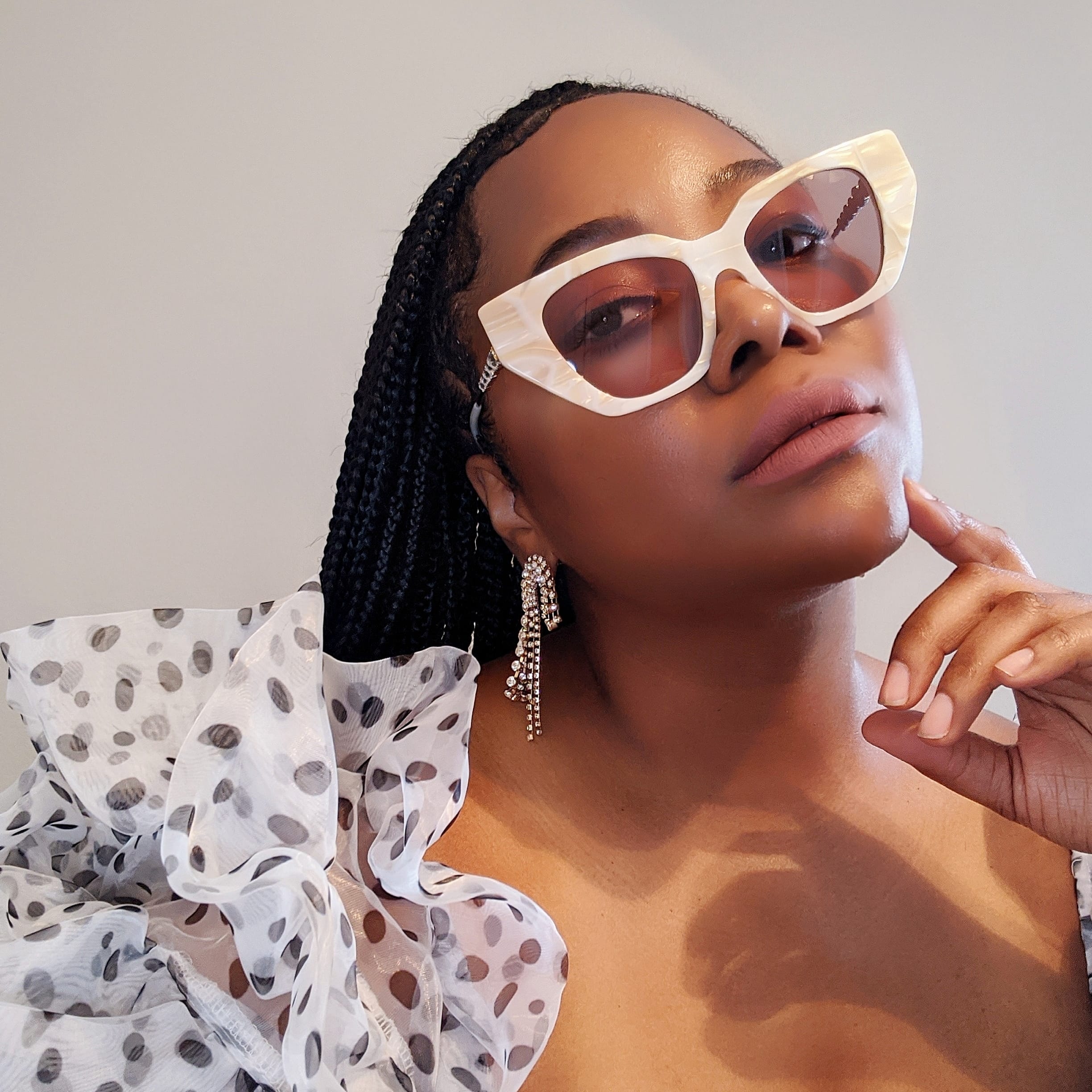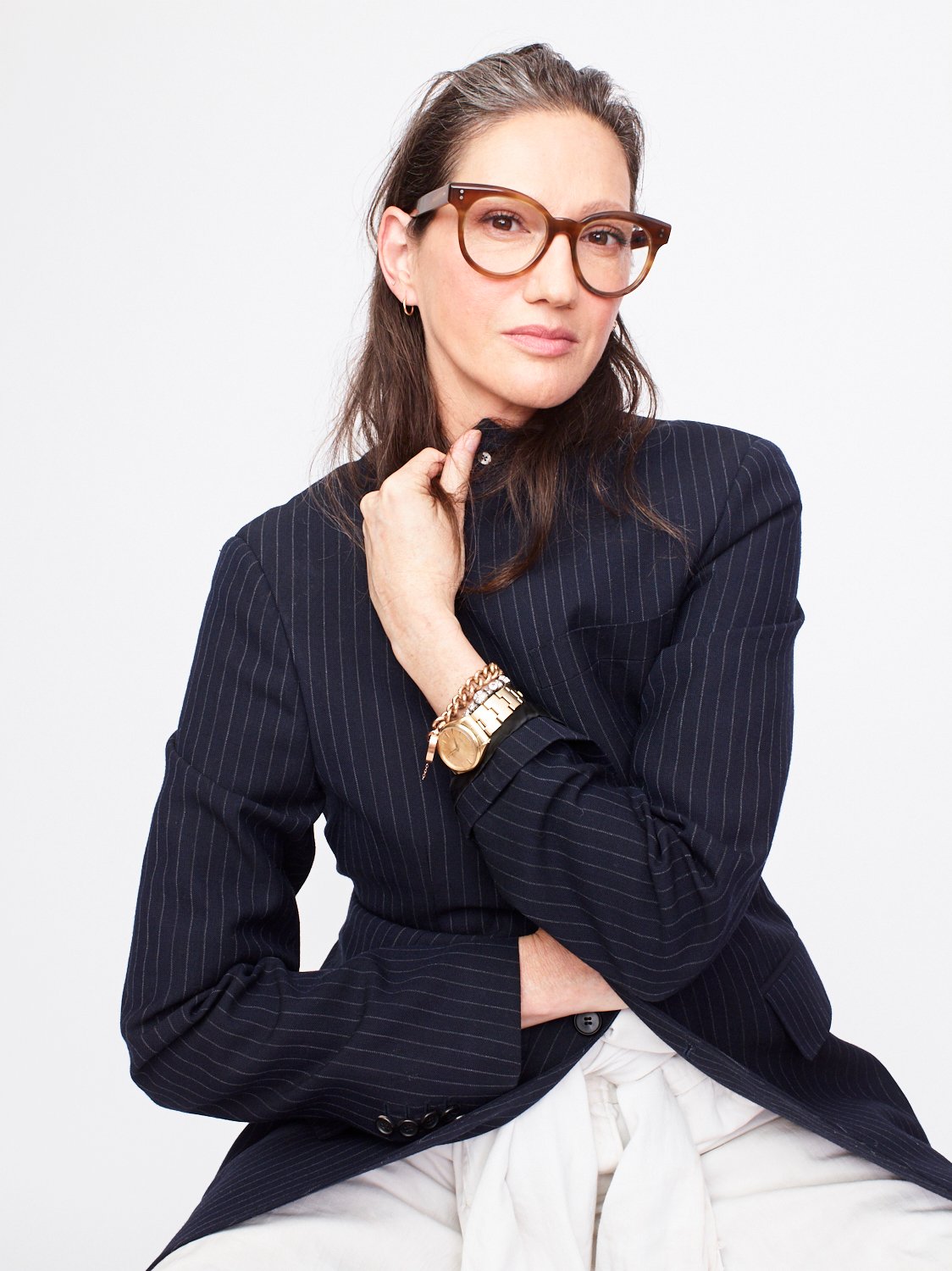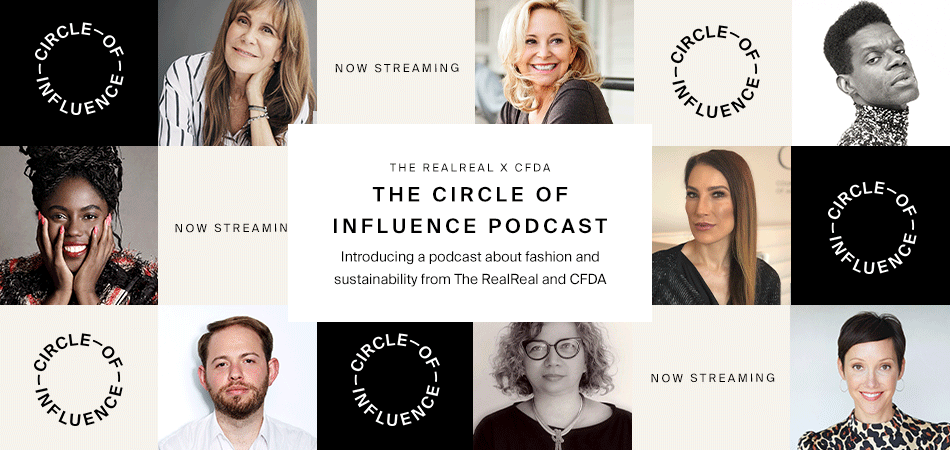Karleen Roy: The Vanity Group Founder on Truth & Transparency, Working with Music’s Top names
December 3, 2020
Rashad Benton


Originally from Memphis, Tennessee, Karleen Roy is the quintessential boss these days – with a come up and hustle that doesn’t seem quite as common today as it was a decade ago. The Howard University graduate originally wanted to be a dermatologist, but learned at the HBCU in the nation’s capital that the world was her oyster. After moving to New York City and living on her best friend’s futon for several months, she became Sean “Diddy” Combs’ Senior Executive Assistant and is now an Experience Producer and Founder of The Vanity Group, a boutique Creative Events Agency. Roy credits volunteering at industry gigs as her right of passage into the world she now operates in, and her story – producing high-profile, red carpet events for the likes of Cardi B, Justin Bieber, Ne-Yo, Nike, Sean “Diddy” Combs, Warner Music Group and YouTube – indeed serves as an influence for those coming up after her.
I read that your entrance into the world of creativity started with an unpaid internship at Def Jam. Can you take me through those times and how that led you to work for Diddy?
Yeah, I was a young, eager recent college graduate. I had just graduated from Howard University in D.C., the real H.U.! Initially, I wanted to move to New York to become an “entertainment publicist.” I was inspired by and wanted to be Samantha from Sex and The City; she was fly, bossy, and her job looked cool. At Howard, I was initially Pre-Med, then that changed to Sociology, but after discovering the show and Samantha, I immediately changed my major to Public Relations. Upon my arrival in NYC, I saw that nothing was going to come easy. I couldn’t find a job anywhere. Fortunately, I met a young woman who worked at Def Jam in the publicity department. She was honest and told me that they weren’t hiring but that I could come and be her unofficial intern, so there I was, sneaking in the building as a visitor, spending the entire day working.
I informally interned at Def Jam for some time unpaid, and one day, I was offered my big break. Ne-Yo needed an assistant, and the job was mine if I wanted it. I remember his manager, who additionally worked at Def Jam, approaching me and telling me he recognized my diligent effort at the label and that when Ne-Yo blew up, he would return and recruit me, and after three months, he did. For a few years, I worked with Ne-Yo’s team. I then moved on to Sony Music, where I worked in copywriting publishing, which wasn’t exciting enough for me, so I chose to work at Sony during the day and volunteer at Violator Management, which is no longer around in the evening. I got my foot in the door by interviewing to be an assistant for an executive at the office. I didn’t get the job, but I asked them if they needed an extra hand anyway; they did, and that’s how I got my in. Violator Management can be viewed as the original blueprint for the likes of Roc Nation and other prominent music management companies you see today. In those days, they managed all the big artists such as L.L. Cool J, Missy Elliot, 50 Cent, Q-Tip, Busta Rhymes, and Sean “Diddy” Combs. Unfortunately, they also weren’t hiring and didn’t have the budget to hire anybody at that point; however, they permitted me to come and volunteer. I remember being informed that their client Sean Combs was searching for an assistant, and it was that relationship and me volunteering late at night that led me to work at Bad Boy Entertainment. Working at Bad Boy for Sean Combs was my ultimate dream job, and I got it.
Without giving away all of your secrets, how exactly does someone inspired by your work break into your field? What are the steps to starting and then getting brands & people to trust you?
The step is to start! The first step is to have the mindset that you will have to roll up your sleeves and get a little dirty. You have to humble yourself, knowing that you’re going to have to start at the beginning, not the bottom but the beginning. Secondly, I’m continually telling younger people today to take whatever opportunity presents itself, and sometimes these opportunities won’t be presented with a shiny red bow. This is where having discernment and good judgment kicks in. Whether that’s working backstage at a fashion show or handling the guest list at an event, you show up and show out. The next step for sure is to be early is to be on time, and if you’re on time, you’re late!
If you are consistent and show up every day ready to work, people will notice. Those would be my first three steps and to show up and know that people are always watching you. Every job I’ve had in my career, I got through relationships, and I’m not afraid to admit that. I have never gotten a job through the traditional interviewing process. My advice is to volunteer, shadow, or be an apprentice for someone at a place where you can learn the ins and outs of the business. People can teach you, send you templates all day, but until you’re tossed in the fire, I’m not sure how you’ll learn.
You’re the founder of The Vanity Group. Why that name and what influenced you to start your own company?
I was thinking of company names, and of course, when you’re young and saying you’re going to create your own business, you need a name and a logo. When I was thinking of names, I was listening to the girl group “Vanity 6,” and I remember googling vanity and vain and thinking, what does this word even mean? And it said, “highest belief in one’s self or appearance,” and I interpreted that as, “if I can’t do it, then no one else can do it because no one can do it better than me.” You have to believe in yourself and your capabilities truly. The foundation of this company is confidence. If anyone can get a million-dollar event done overnight in Ibiza, it is The Vanity Group. We are that confident and that badass, and that’s a part of the organization’s ethos.
At Bad Boy, I was Mr. Combs’ Senior Executive Assistant and was the nucleus of his operation. I was his right hand, interfacing with business contacts, handling his schedule, travel, and social calendar. I was the gatekeeper to getting to him. One substantial part of my position was the events that we would put on at Bad Boy or for Mr. Combs himself. Whether it was the twin’s fifth birthday party, Justin’s Sweet Sixteen, or Christian’s 13th birthday party in Vegas, it was my responsibility to get the events off the ground, I loved it, and that’s where I thrived. Working under Mr. Combs allowed and gave me the experience to plan events worldwide from Paris to London to Saint-Tropez. Through this position, event producing started becoming second nature, and after six years, I resigned from Bad Boy; took some time off to regroup and think about what I wanted to do next. While I was figuring out my next move, my phone started ringing, and people wanted events produced overnight. I started becoming the girl who could get the big-budget, high-profile, celebrity-driven events done. After two or three years of freelancing, I realized this was a business, and that’s how The Vanity Group started. It was ultimately word of mouth how I started garnering these clients.
Every job I've had in my career, I got through relationships, and I'm not afraid to admit that. I never got a job through the traditional interviewing process.
What would you say is the difference between an event producer and an experience producer, as it says in your Instagram bio?
I think event producer and experience producer are pretty much the same. It is used interchangeably. I feel experience producers have a bit more creativity to them. I know plenty of event producers who lack the creative ability or don’t think outside the box. To me, an experience producer is a bit of a creative producer, and it’s their job to make a concept a reality no matter how big or how small. This person has the know-how and the skillset to get a team, lead a team, and lead them to execution.
What has been your most noteworthy achievement or project up to this point? The one or two you still cannot believe you worked on?
Well, I would state my most significant accomplishment is The Vanity Group existing. Honestly, this was a fantasy and something that, over the long run, happened naturally. The fact that I was able to develop my business from my little Harlem apartment to an actual office space in Manhattan that I can afford with a full-time staff on salary with benefits, insurance, and everything else is an accomplishment to me. I will, in every case, praise myself for that. Everybody knows that New York is the most challenging city to live in with a typical 9-5, so to strike out all alone and build a company that continues to thrive, that’s a major accomplishment to me, and I do not take it lightly. I am very proud of where I am and the hard work it took to get here. My dad would always say, “if it doesn’t make dollars, it doesn’t make sense,” or “you’re more attractive when you have a job,” or “if your job doesn’t have insurance or benefits, then it’s fake.” His spirit is always around and keeping me covered.
Before you were your own boss, did you ever feel celebrated at any of your past positions?
Yes! Truly! I’ve been lucky to have some amazing people champion me my whole career. People who looked out for me made sure I had everything I needed and served as great examples. So, I have felt celebrated throughout my career and by women as well.
Have you ever felt ignored or left out of an employment opportunity because of your skin color?
I’ve been very blessed that most of my career has been in environments where Black people and our culture are celebrated, where imagination and creativity are praised, and Black individuals are in positions of authority. In the past, while I was in-between Bad Boy and The Vanity Group as a freelancer, I would go on a ton of interviews where I was scrutinized on my appearance. I was asked to change my hair, nails and wear less jewelry. I was so confused because I know how to show up and be polished. There was another time where I remember feeling undervalued during an interview at a predominantly white organization. Going on those job interviews and realizing they didn’t value the professional pedigree I came from was vexing and made me want to do my own thing even more.
What should be done for Black individuals in the event producing industry, or what might you want to see done for those individuals?
Black producers are here. I will say they are some dynamic event producers who can do extraordinary over-the-top jobs. Do I think we are getting the money and the same budgets that the white producers or event production companies are getting? No, I do not! I’ve seen the budgets that they pay them and what they’re willing to pay us, and it’s always a considerably smaller budget given to Black event production agencies. It always seems as if they come to black companies because they want it for less money or want our sauce but aren’t willing to invest in what it takes to create it. We are in business just like everybody else; we are just as talented, just as qualified, and when you don’t get the same type of money or clients, you don’t get the same kind of exposure. Brands need to value us the same way they value white companies. Give us the same opportunities as our white counterparts. Also, I think it’s important to know that Black production agencies don’t only do “Black events.” It’s crazy that I even have to say that. If you’re good, you’re good, and that should be the end of that.
How have you given back to your community through your position?
I am fortunate to employ an office of women of color; my community. I wish an organization like The Vanity Group existed when I was younger and looking for work. I also host a powerful, annual event in my hometown of Memphis, Owning the Block. It’s a speaker series where I bring my rolodex of self-made women to my beloved hometown. Hopefully, through conversation and sharing of stories, it inspires the next generation of go-getter’s in the city to propel their own lives and careers.
Are there any Black Event Producers/Designers known or unknown that you would like to bring to the CFDA’s attention?
For event producers, I would like to highlight Tricia Smith-Brown and Brittney Escovedo; they are my peers and do fantastic work. For Black designers, Tahir “Mr. Legacy” Murray owns this company called LEGACY. HISTORY. PRIDE. He’s a senior at Howard University and he’s created an HBCU-themed streetwear brand that is fresh and very much hot at the moment, especially with all the HBCU pride on social media and the media due in part Vice-President Elect and Howard Alum Kamala Harris. Romeo Hunte! I am obsessed with him, and I love the structure of his garments. Of course, Christopher John Rogers. The vibrance and whimsical vibe of his clothing…I wish I could dress like that in my everyday life.
What are some of the things you think the CFDA should do to improve diversity and inclusion?
First, continue series like the one you’ve created, Rashad! Storytelling is so important, and it inspires people in so many ways, and by hearing stories like these, someone can take a page out of my book and apply it to their own. Secondly, we are past the day of black boxes and just writing a check to a “Black Foundation.” People can see through that these days. Put Black people in positions of power, and I’m not saying give them a fancy title but give them a job with authority to make real decisions and call the shots. Make them the button pushers so they can be a change agent. From what I’ve observed in the business, it’s a lot of red tape and politics that stops that from really happening.
Before we end, I wanted to know how has COVID-19 impacted your business since it made its way into our lives. How have you managed?
Such a great question. We went from flourishing to zero events in seven days’ time—the second the pandemic hit, our entire world crashed. All of our events were canceled, and we were going into our busiest season. I was in a state of shock, like most people in the world. How does this impact me, how long will it last, will we be able to maintain our cash flow; all important things to think about for a business. I’m happy to say that we were able to regroup and get creative in the interim. Birth from this pandemic is something that I’ve always wanted to do, and that is teach other creative and up-and-coming event planners. We have recently launched The Event Academy, which is our online e-learning destination for event professionals. Our first course, Event Starter Kit, is a deep dive into production basics, so scholars have the tools they need to plan their own successful events. It is evident this won’t be our season as far as live events are concerned, and I’m okay with that. This time has allowed me to slow down, tap further into my creativity, and fine-tune Vanity Group’s foundation. Pivot or Perish is the name of the game right now. Astute business leaders will figure out how to weather this storm and come out on top. I invite everyone to visit thevanitygroup.com for more information on what we do and the services we offer.

